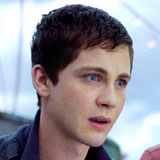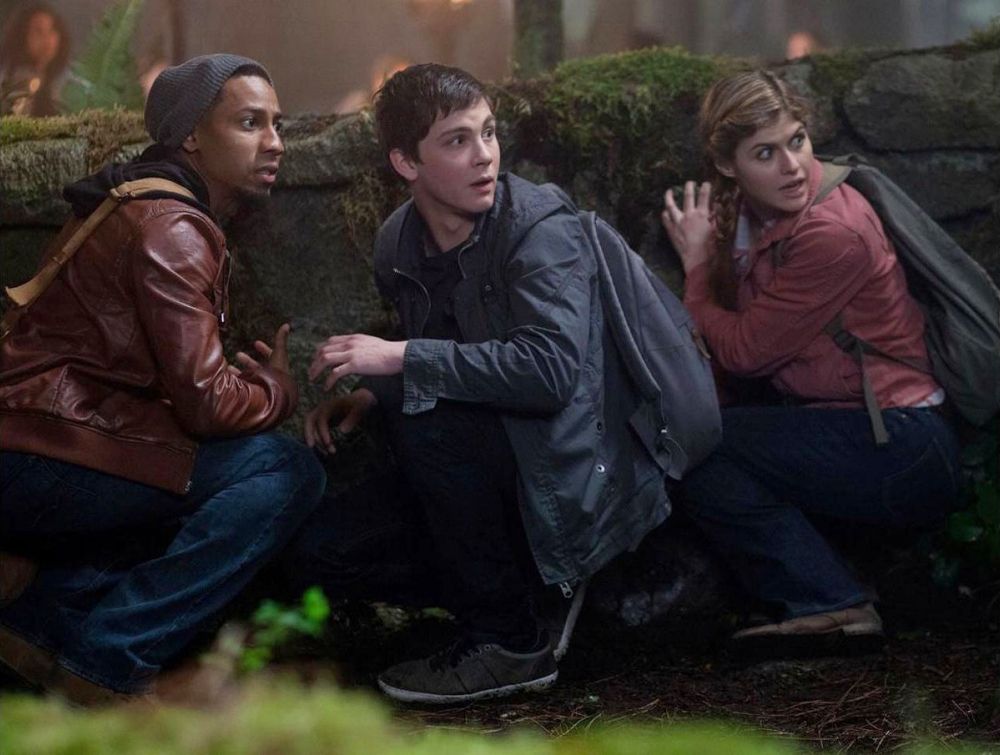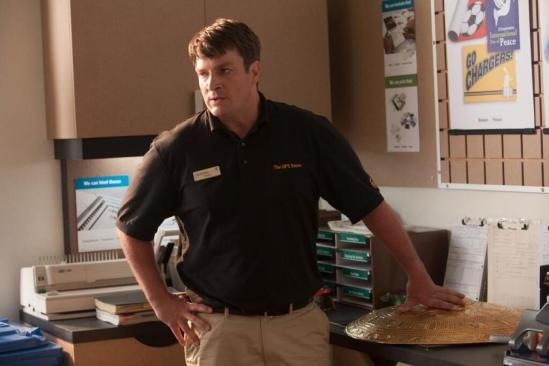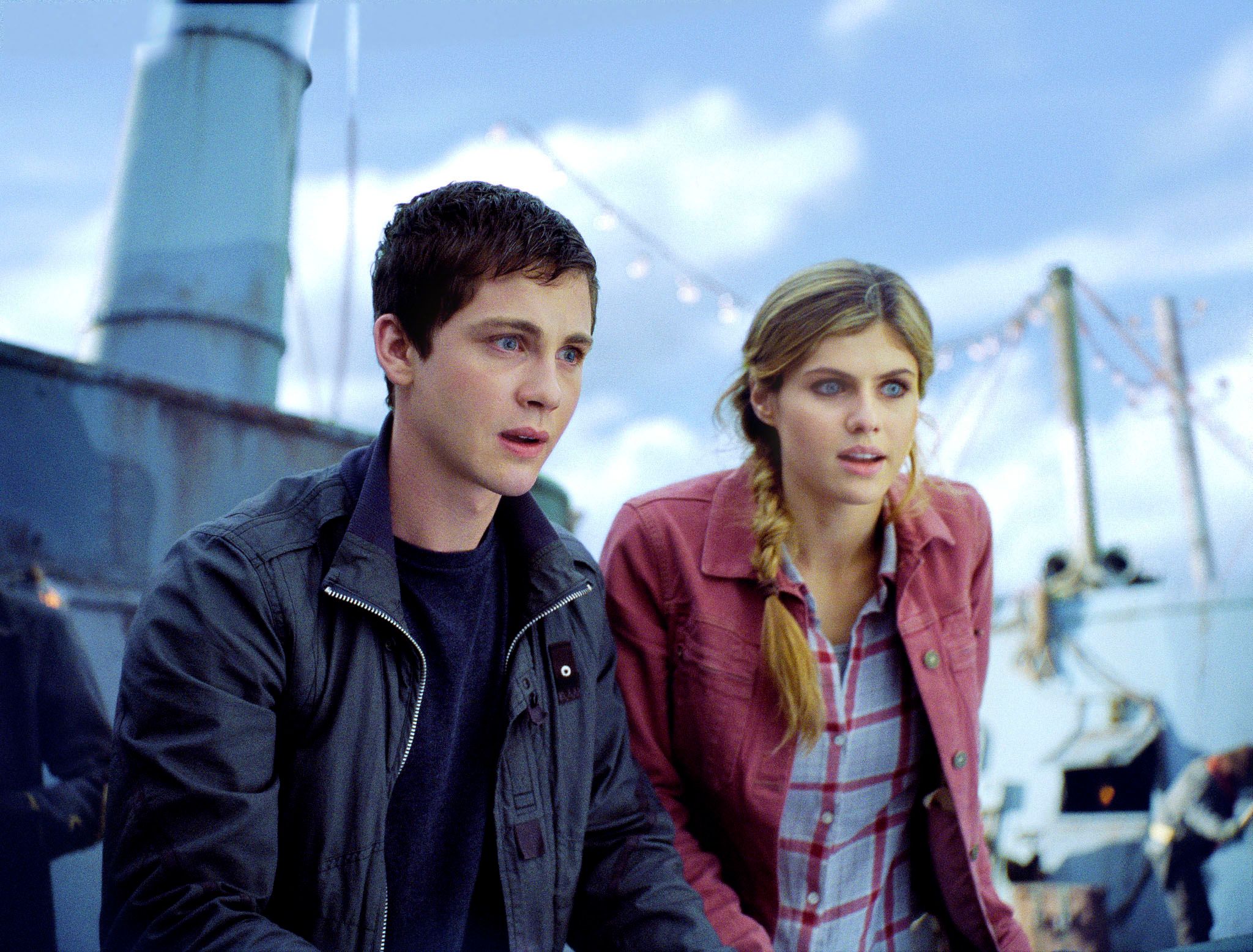In Hollywood, it's hard to keep a good sequel down. But when crafting a film in a series that's also an adaptation of a beloved book, the work of pleasing audiences gets more difficult to a mythic degree.
That's part of what screenwriter Marc Guggenheim had to work with while drafting the story for Percy Jackson: Sea of Monsters – director Thor Freudenthal's adaptation of the second book in Rick Riordan's insanely popular young-adult series – which opened in theaters this week. Three years after The Lightening Thief started the story of the demigod son of Greek deity Poseidon, the task of adapting Sea of Monsters was uncertain. When an initial attempt at a screenplay failed to please producers, Guggenheim was tapped to get the Logan Lerman vehicle (which also stars Brandon T. Jackson, Nathan Fillion, Stanley Tucci and Anthony Head) back on track.
The resulting film draws inspiration from both the Sea of Monsters novel and other moments from the Percy Jackson series to reintroduce the world of teenage Half-Bloods, ancient prophecies, epic monsters and the quest for the Golden Fleece. And as Guggenheim told SPINOFF ONLINE, the goal of the film was to stand alone and give audiences a fresh start in a crowded marketplace of sequels and reboots. Below, the writer explains how he rode a fine line between loyalty to the novel and making a great action film, how the casting of a fan favorite like Fillion affected the characters, and why Percy Jackson is much more than a Harry Potter retread.
Spinoff Online: Marc, coming into Sea of Monsters, there were a lot of considerations to be made. It's not just a big action movie but also a sequel and an adaptation that a lot of young readers have high expectations for. What were the goals and even the marching orders you had when you came into the process of writing the film?
Marc Guggenheim: I guess the biggest marching order I had came because I was brought in after they already had a draft of the script which, quite frankly, didn't work. We had a very, very short amount of time to basically write a whole new movie. So first and foremost, I had to think of a wholly different way of adapting the novel.
With the draft that was originally done, the only thing wrong with it was that it was too faithful to the book. And I want to be clear in what I mean by that. I'm sure there are a lot of people who are fans of the books who will go, "If it was so faithful to the book, that's actually perfect! What could possibly be bad about that?" And the answer is that any time you adapt a story from one medium into another, you have to approach total fidelity at your peril. Fidelity can often be a very good thing, but more often than not you find the strengths of one medium can turn into weaknesses once translated.
As an example from Percy, in the original Sea of Monsters novel, the character of Grover basically spends half the book away from Percy. When the novel begins, Grover is not at Camp Half-Blood. He's off on a quest to find the Golden Fleece, and he only interacts with Percy via this telepathic connection that the two of them have. That's something that can really only work in a novel. It's very hard to make that work in a motion picture. For me, I felt like we had the character of Grover – one of Percy's closest friends – who if I held true to the book wouldn't be seen by the audience for half the movie. For a movie-going audience, that would have been very unsatisfying.
So it's those various examples of the differences between what works for a book that won't work in a movie and vice versa. The challenge for me here was how to reconceive the screenplay in a way that adapts the book with all the iconic moments that make it special while still telling it in a way that works for a motion picture.
On that front, there is a core to the Percy Jackson books in general with their mix of action adventure and Greek myth that everyone knows. What did you view as the sacred elements of the series that had to appear on screen no matter what changes also took place?
I think first and foremost, you put your finger right on it when you talk about the tone. The tone of the books is this very specific mix of adventure, comedy and wish fulfillment in the form of the idea that any kid can be a half-blood with all the powers of the gods that that entails. And then there are just moments from the book that are iconic. Basically you need a certain number of these moments – though there's no magic number to it – to properly reflect the novel.
For example, it's really important for Percy to have an encounter with Hermes and with Polyphemus, the Cyclops who guards the Fleece. One of the moments from the novel that we put into the movie that wasn't even critical to the story but was iconic in that it was a fan favorite was Grover dressed up in a wedding dress. And that won't mean anything to you unless you see the movie or read the book! [Laughs]
But overall, you just want to stay true to the essence of the book. And "essence" is a very tough thing to define, but you know it when you see it. I do feel like we hewed very closely to the essence of the novel. That was something at the forefront of all of our minds as we were working on the script and during the filming. And I'll say that reasonable minds may differ – and if you look on the internet they already have – but I feel like we really got that essence of the book and series. I even through in little nods to the specifics of the book like when Thalia has a big scene later in the movie, her dialogue is word-for-word from the books. There's also a scene where Chrion takes Percy to see the Oracle to find out about the prophecy that relates to him. That scene is word-for-word from the first novel, actually. The prophecy was something established in the first novel that was dropped from the first movie, but I felt it important to include it in the second movie. So when it came time for that scene, I opened up my copy of the first novel in the series, The Lightning Thief, and cribbed that scene word for word. It's not because I'm lazy, but I thought the fans would appreciate the attention to detail.
As you said, you came in after a draft had been done. Did that allow you to know a bit more about the particulars of the production as you wrote? I know Nathan Fillion's casting as Hermes got the attention of his fan base. Were you able to write his scenes with him in mind?
Truth be told, when I came on board even though a draft had been done, the movie hadn't been greenlit yet. So the only cast we knew about were the ones from the first movie. In the case of Chiron, who in the first film was played by Pierce Brosnan, we didn't know whether Pierce would be able to return. When we found out that he couldn't work this into his schedule, I lobbied for Daniel Craig to play Chiron because I thought that'd be funny. [Laughter] But we didn't have Stanley Tucci playing Mr. D or Nathan Fillion playing Hermes until later. Though when our director Thor Freudenthal had the brilliant idea to cast Nathan, he pitched it to me and then asked me to do a "Nathan Fillion pass" on that scene writing the character with Nathan in mind. By then, we were deep into production mode, and I'd done several drafts of the script, so it was fun to be able as cast member came in to tweak and adjust for them.
Often with Hollywood sequels, you're living up to the expectations of topping or responding to the first film. I feel like adapting a book series like this is different because audiences expect the movies to grow and mature with each film just like the books do. Did your adaptation come together with that idea that you were building track for the long-term life of the series?
No. In fact, because there was so much of a time gap between the first movie and the second one, it was all of our intentions to approach this movie from the standpoint of having it stand on its own terms. We didn't want to presume any familiarity with either the first movie or the book series. Apart from a couple of lines of dialogue that make a nodding reference to the first movie, we worked to make this a story that stood on its own two feet. That presented its own unique challenges from a sequel perspective because we're so used to living in a world of reboots or movies that build on a preexisting set of movies. Here, we took the opposite approach of saying, "Let's make a movie that doesn't require having seen the first one at all. Let's let people enjoy this on its own terms."
There are a ton of popular YA novels that are making it to film these days from Twilight to Hunger Games, and I feel like Percy Jackson has sat within that group of hit series while also drawing a lot of comparisons to how other franchises like Harry Potter were done. Did those considerations impact you at all while writing?
The truth is, reading the reviews of the movie there have been some that are very positive, but the ones that are negative tend to be premised on the opinion that the Percy Jackson series is just a cheap knock-off of the Harry Potter series. And I don't think that's a fair comparison. For one thing, the two franchises definitely have their differences, and for another, this series is very beloved in its own right. It may not be the wide-ranging cultural phenomenon that Harry Potter was, but it's pretty darn close. If all this was was a cheap Harry Potter knock off, that series wouldn't have as many fans as it does.
So I encourage people to go and see the movie on its own terms without that baggage, because that's how it was designed. And what the two series have in common more than anything else is the very basic, Joseph Campbellian Hero's Journey at their heart. There's wish fulfillment in that idea that the protagonist of each starts out thinking that they're not special, but as it turns out, they're actually exceptional with a secret destiny. But that's hardly something that was invented in Harry Potter. It's an age-old story, and the Percy Jackson series puts its own unique spin on it.
You've been working on this film, but you've also got your day job running Arrow for The CW. At this point, are you looking to continue on with more feature work or even more Percy Jackson considering how much writing you're doing for the show?
I have to say, this has been a dream experience. Karen Rosenfelt, the producer, and Thor Freudenthal, the director, and our studio in Fox 2000 were great to work with. It's funny because my feature agent keeps saying to me, "You know, this is not a typical experience for features!" It was seriously one of the professional high points of my career.
But I wrote my original draft of this movie almost two and a half years ago, and I've continued to write movies since then while doing pre-production and production rewrites on Percy. For example, I wrote a draft of the Perry Mason movie for Robert Downey Jr. and Warner Bros. I have a couple of screenplays on my desk at the moment too, so it's definitely something I've been juggling alongside Arrow. I'm not going to say that there weren't times where I wish I was getting more sleep. [Laughs] But I do like having projects that are a pallet cleanser occasionally. When I get stuck with something on Arrow, it's nice to have something to shift to. One creatively feeds the other, and the screenwriting is something I've been doing since before Percy, and I'll continue to do more after. There are a variety of projects that haven't been announced just yet, but I've been enjoying the work.
Percy Jackson: Sea of Monsters is in theaters now.





